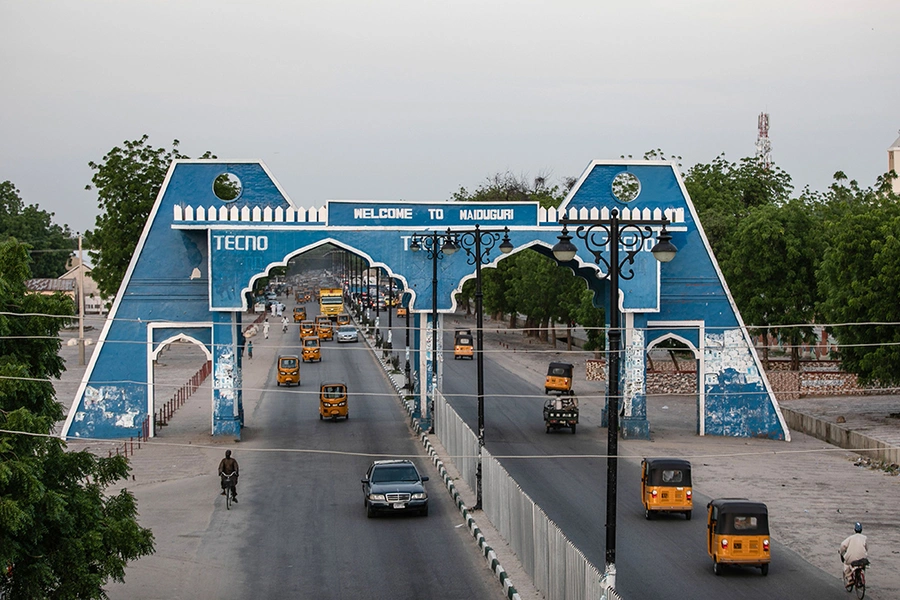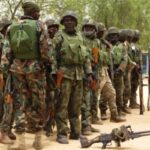Again, it’s time to celebrate the World Arabic Language Day (WALD ) scheduled to hold next week Wednesday, December 18, 2024. The theme for this year’s celebration is “Arabic Language and AI – Advancing Innovation While Preserving Cultural Heritage.” The question is, why Arabic Language and Artificial Intelligence (AI)? Arabic, spoken by over 450 million people and holding official status in nearly 25 countries, is a global language with immense cultural significance. Yet, obtainable statistics show that only 3 percent of online content is available in Arabic; restricting access for millions of speakers and users of the language.
As a brain-child of the Educational, Scientific and Cultural Organization (UNESCO), the WALD creates a vibrant platform for dialogue, exchange, and mutual understanding for celebrating the language’s global significance. The day brings together diverse voices and fosters cultural contacts. While eminent scholars, experts, and leaders would gather at the headquarters of the United Nations Educational Scientific and Cultural Organization (UNESCO) in Paris to explore how AI can bridge the digital gap for native and non-native speakers of Arabic Language, the Executive Director/CEO of the Nigerian Arabic Language Village (NALV), Professor Ibrahim Muhammad, would in Nigeria lead a congregation of distinguished professors, academics, traditional rulers, religious leaders, scholars from the traditional Qur’anic system, and top government functionaries during the 2024 WALD at the NALV in Maiduguri to brainstorm on how to increase online representation of Arabic with a view to furthering the preservation of the cultural heritage of the language.
As usual, the 2024 occasion would be attended by Governor Babagana Umara Zulum of Borno State, who to the best of my knowledge, has never missed the annual event since the NALV started hosting it. He has always been part of the conversations about issues concerning the teaching and learning of Arabic within the formal and informal school systems. Last year, 2023, there were correspondence gaps in the invitation sent to him for the event as he only got to know of the occasion when he saw one of the event banners while on his way to the office. He quickly diverted his convoy to the venue of the WALD event. If anything, his decision to shelve his planned schedule in favour of the Arabic Day shows and affirms his passion, explicit support, and commitment to the development and preservation of Arabic language in Nigeria.
Arabic is one of the indigenous Nigerian languages spoken by the Shuwa Arabs in Borno State; the strongest of all reasons that informed government’s decision to site the NALV in Ngala, a Shuwa Arab community in Borno State. Insurgency, however, forced the relocation of the NALV to Maiduguri metropolis.
- Inside Gombe’s herbal medicine market
- How input distribution system worsens plight of Nasarawa women farmers
The WALD was established by UNESCO in 2010 with a view to promoting cultural diversity and the equal use of its six official working languages throughout the organization. December 18th was chosen as the date for the annual celebration of Arabic Language as it was the day in 1973 when the General Assembly approved Arabic to be an official Language of the United Nations.
Arabic is a language with rich history that is spoken by 422 million native speakers and used by about 1.5 billion Muslims around the world including UNESCO’s 22-member states. Researches have shown that more than 7,000 words in the English language are either Arabic or derived from Arabic. Other unique features of Arabic include being a language with no capital letters in its orthography. Unlike English and several other languages, verbs come before subject in the syntax of Arabic language.
No historical account of modern science and technology would be complete without due acknowledgement of the important role played by Arabic language. Greek ideas and philosophy couldn’t have reached Europe without the translation works of Arab scholars and philosophers who rendered the works of Plato and Aristotle into Arabic. Indeed, the scientific revolution of the 16th and 17th centuries couldn’t have happened if Greek works had not been translated into Arabic. Thus, Arabic served as the first bridge that linked Greek philosophy with European civilization.
Within the context of the utility of Arabic language in Nigeria as a tool for societal revival, value re-orientation, national cohesion, peace, security, relevance in global economy, international politics and diplomacy, the NALV is not only strategic but remains a major driver in all this. We, therefore, request government to support the NALV with necessary funding needed to enable it to achieve its core mandate.
This writer reminds users and admirers of the world’s richest language who would not be at the Maiduguri event that they could still be part of the WALD by speaking Arabic with fellow users of the language even if it were few words in their homes, mosques, workplaces, and schools. It would be cheering to hear Prof Zulum who I have since branded as “the image of Nigerian professors” to speak little Arabic (even in salutations) while making his speech at this year’s WALD in Maiduguri.
May Allah (SWT) guide all speakers and users of Arabic to strive with their intellect, tongues and pen to preserve the only language that is written from right to left; spoken both on earth and in the heavens, amin. Happy 2024 Arabic Language Day!

 Join Daily Trust WhatsApp Community For Quick Access To News and Happenings Around You.
Join Daily Trust WhatsApp Community For Quick Access To News and Happenings Around You.

